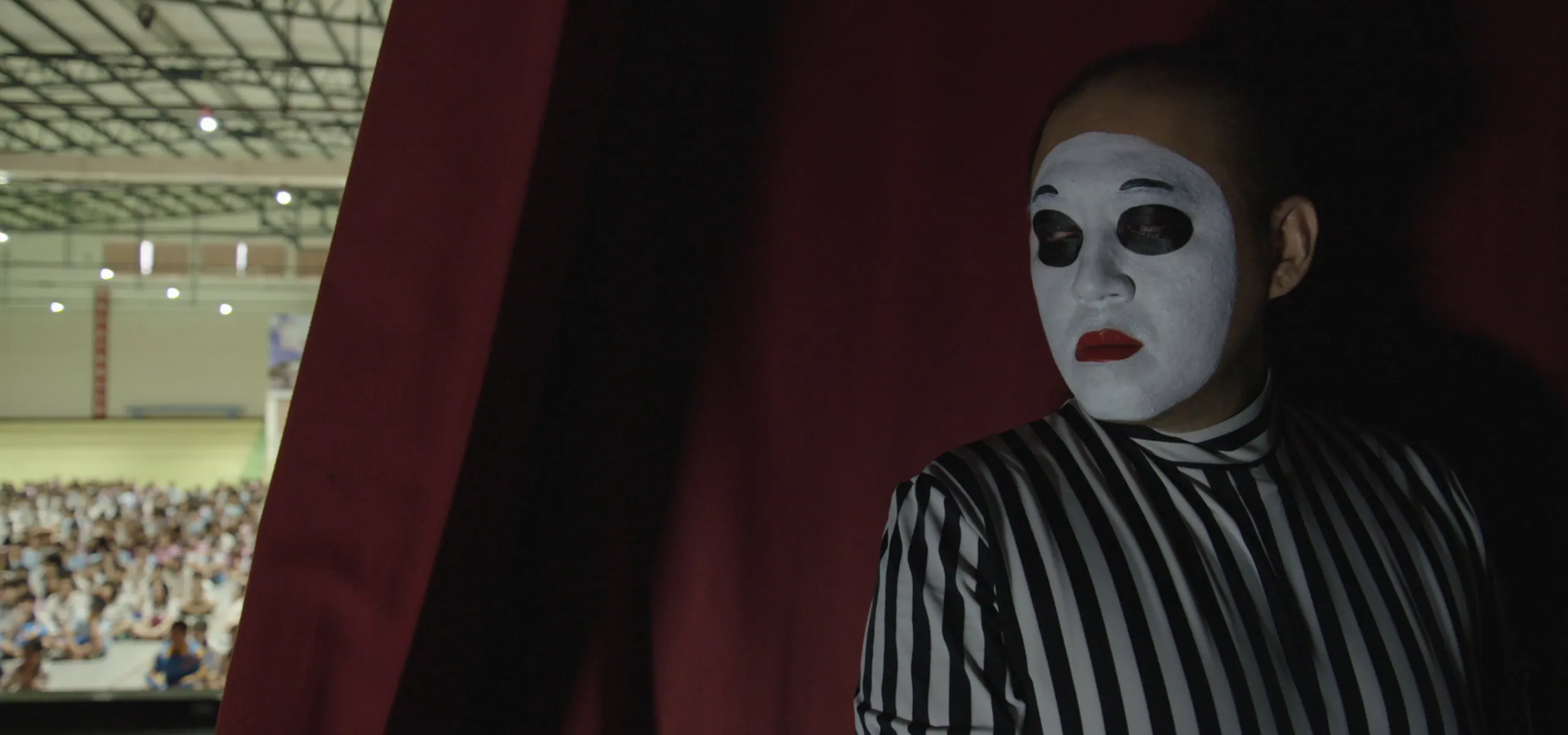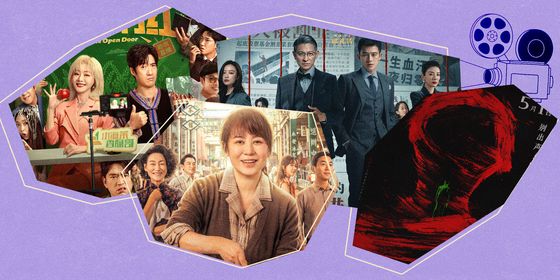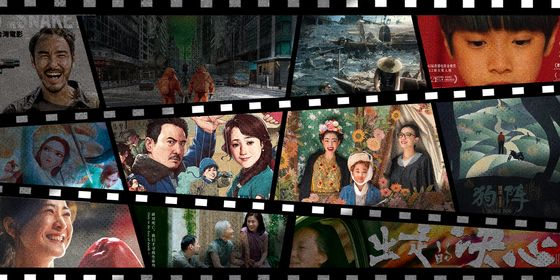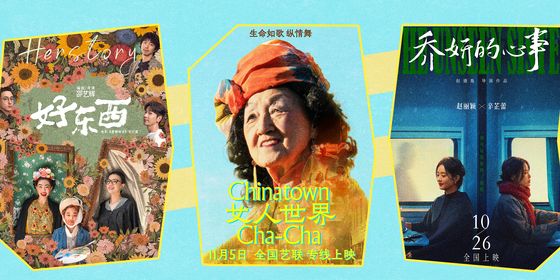A director explores the exploitative nature of documentary filmmaking in his latest work about childhood trauma
Sunteck Yao is a mime artist who lives in Taipei, while Tong Meimei is a psychotherapist over 1,200 kilometers away in Qingdao. These two seemingly unrelated individuals have little in common, except that they both suffer deep and lasting psychological pain from catastrophic childhood experiences.
They are also the subjects of Zhou Hao’s latest documentary All In (《孤注》), which premiered at the Shanghai International Film Festival earlier this year.
When Tong was 3 years old, her father took her to the hospital, left her in a hallway, and jumped off the building to his death. Later in life, Tong had a miscarriage before losing her husband in a car accident. Now working as a therapist, her job is to patiently listen to and help others work through their problems. But more than 50 years after her father’s suicide, she still wonders whether he would still be alive if she had been a better daughter.
At the age of 12, Yao got off a bus at the wrong stop. When he called his mother, she scolded him and told him to go to the police for help. An elderly man invited Yao to his home for a rest, before drugging and raping him. Now, Yao works as a mime performing for children, and often shares his story with the audience after each show. But he has kept the incident a secret from his family, in part not wanting them to feel guilty. Until their deaths, his parents knew nothing about the nightmare that had transformed their son’s life.
The camera follows Tong’s therapy sessions and her frequent arguments with her mother; Yao’s mime performances and his visits to the children he sponsors financially in rural Guangxi; and Zhou’s interviews with them both. On the surface, it seems that All In is about two people working to heal others while grappling with post-traumatic stress disorder (PTSD) themselves. But as the film reveals more and more of Zhou’s involvement, another issue surfaces, perhaps the real focus of the film: the relationship between the filmmaker and the subjects.
The name “documentary” often gives the illusion that this genre of films is nothing but a faithful record of events. The camera, and by extension the audience, seem to be hiding under a cloak of invisibility as it captures the subjects’ lives. But in fact, documentaries are created by filmmakers who receive consent from their subjects to shoot; who accompany their subjects, at least physically, in their moments of vulnerability; and who select footage to piece together through editing. In turn, for the subjects, the act of exposing themselves to the camera, the filmmaker, and the audience will also have an impact on themselves.
Having worked as a photojournalist for more than a decade before he started making documentaries, Zhou has won international accolades for depicting China’s social issues through a humanistic lens. His documentary Cotton (2014) follows four individuals in the labor-intensive cotton industry across the country, while Chinese Mayor (2015) captures a high-ranking official’s controversial efforts to transform the former mining city of Datong into a cultural destination.
However, getting a mayor’s permission to film at Party meetings and construction sites is different from earning Yao and Tong’s trust to share their most painful memories. The latter is so much more personal and has the potential of causing more harm to the subjects.
Yao and Tong’s pain makes a compelling on-screen story and has brought many among the audience to tears; but what does it mean for the two individuals to expose themselves to the camera? They have agreed to be filmed partially in the hope that their stories could raise awareness for PTSD, but at the same time, they both express their fear of being harmed in the process. In this light, the title All In, which might appear confusing at first, starts to make sense. By agreeing to be filmed, Tong and Yao are taking a big risk, accepting the consequences of opening up to Zhou and tearing open their wounds in front of the camera.
While Zhou hasn’t shied away from making himself visible in his previous works, in All In, perhaps because of his awareness of the risks taken by Tong and Yao, Zhou takes this a step further, revealing his own involvement with the subjects as well as the frustrations and accusations they throw at him.
For example, when Tong sends Zhou a WeChat message complaining about her mother’s recurring habit of impulse-shopping, and half-jokingly tells Zhou that the next time the crew come to film her they might as well just collect her body, Zhou replies with a simple, “We will be coming soon.” It’s hard to tell if this is the director’s attempt to cheer Tong up with some dark humor or to stay objective with a nonchalant response. Zhou’s apparent callousness eventually takes its toll on Tong, who breaks down while cooking for the crew in one scene and accuses Zhou of always keeping a distance with her and the rest of his team.
Yao, on the other hand, reveals that, in ways he can’t explain, Zhou reminds him of his rapist, which made their every interaction excruciating for him. He also complains that Zhou flaunted his material by letting him listen to messages that Tong had sent him, in which she is heard crying. Yao gradually comes to realize that the film will probably not offer him any closure. Eventually, he removes his microphone while on camera and ends the documentary of his own accord.
On review platform Douban, All In has received overwhelmingly positive feedback, scoring 8.1 out of ten. While some comments called Zhou “brutal,” others praise him for “bringing the original sin of documentaries and the ethics of filmmaking to a higher level, and inviting more criticism on himself” and for “not pretending to be a distant observer.”
But Zhou’s callousness sometimes verges on exploitation. During one conversation in the film, for example, an inebriated Yao slaps Zhou in the face. Later, after a screening of the film, when a friend asked the filmmaker what went through his mind after being hit, Zhou replied “I was ecstatic. I thought, there, I got this scene.”
This response highlights Zhou’s professionalism, but it is also chilling, in showing his instincts as a director override any other role he might take in relation to his subjects. Zhou’s readiness to expose himself and accept judgment from the audience earns him a reputation for courage and innovation. Even if it is not the director’s intention to exploit Tong and Yao’s stories—and even though he seems ready to acknowledge his exploitative role—subjects were harmed in the filmmaking process, and this is among the many important questions that All In raises about the nature of documentaries.













